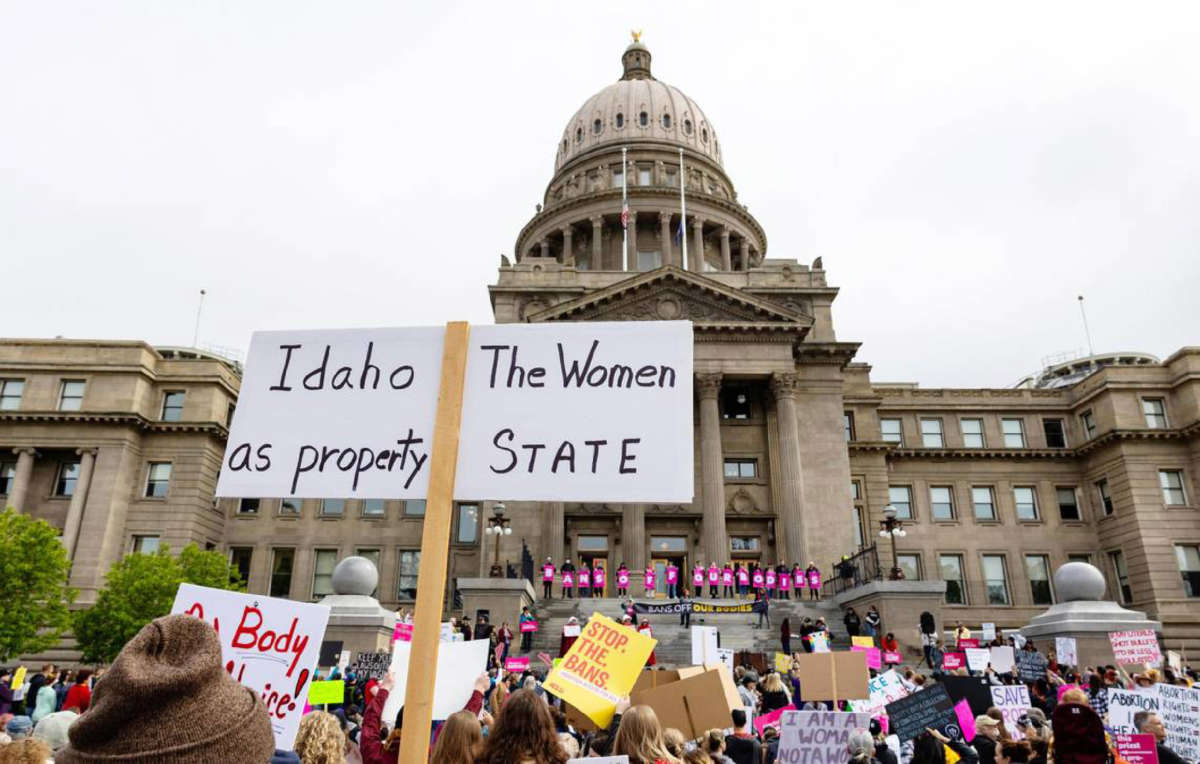Honest, paywall-free news is rare. Please support our boldly independent journalism with a donation of any size.
A portion of Idaho’s abortion ban has been temporarily blocked after a federal judge found that it was in violation of a law that is meant to protect patients’ rights in medical emergencies.
This week, District Judge B. Lynn Winmill sided with the Department of Justice (DOJ), which sued Idaho over the enforcement of its abortion ban, contending that the law violates the Emergency Medical Treatment and Labor Act (EMTALA).
The ruling does not block the enforcement of all of Idaho’s abortion restrictions. But it does grant added protections to people whose health may be negatively impacted by their pregnancy.
The Supreme Court’s ruling to overturn Roe v. Wade activated a trigger law in Idaho that bans abortion at every stage of pregnancy. The law makes exceptions in cases of rape or incest but requires patients to provide an affirmative defense proving they are victims. Idaho’s law is also more restrictive than other states when it comes to exceptions for medical emergencies. For the state to consider abortion a medical necessity, it is not enough for the pregnancy to present a serious health risk to the pregnant person; instead, doctors must prove that the pregnancy is life-threatening.
In June, following a directive from President Joe Biden, the Department of Health and Human Services (HHS) said that pregnancies that cause physical harm are covered under EMTALA, regardless of whether or not that harm is life-threatening.
“A physician’s professional and legal duty to provide stabilizing medical treatment to a patient who… is found to have an emergency medical condition preempts any directly conflicting state law or mandate that might otherwise prohibit or prevent such treatment,” including in circumstances where “abortion is the stabilizing treatment necessary to resolve that condition,” the guidance states.
“Under the law, no matter where you live, women have the right to emergency care — including abortion care,” HHS Secretary Xavier Becerra said in a statement after the guidance was released.
The DOJ sued Idaho on the premise that it was illegal for the abortion law to allow the procedure only in life-threatening medical emergencies. Winmill agreed with that notion, and placed a temporary injunction on that part of the state’s law until a further decision could be made.
“Allowing the criminal abortion ban to take effect, without a cutout for EMTALA-required care, would inject tremendous uncertainty into precisely what care is required (and permitted) for pregnant patients who present in Medicare-funded emergency rooms with emergency medical conditions,” Winmill said in his ruling, adding:
The clear and intended effect of Idaho’s criminal abortion law is to curb abortion as a form of medical care. This extends to emergency situations, obstructing EMTALA’s purpose. Idaho’s choice to impose severe and sweeping sanctions that decrease the overall availability of emergency abortion care flies in the face of Congress’s deliberate decision to do the opposite.
The injunction blocks officials in Idaho “from initiating any criminal prosecution against, attempting to suspend or revoke the professional license of, or seeking to impose any other form of liability on, any medical provider or hospital,” if an abortion is considered necessary to avoid pregnancy-related harm to the health of a patient.
Federal judges elsewhere have ruled against EMTALA defenses put forward by the DOJ, including in Texas.
The DOJ is expected to appeal the Texas ruling to the 5th U.S. Circuit Court of Appeals, while Idaho is expected to appeal Winmill’s ruling to the 9th U.S. Circuit.
Media that fights fascism
Truthout is funded almost entirely by readers — that’s why we can speak truth to power and cut against the mainstream narrative. But independent journalists at Truthout face mounting political repression under Trump.
We rely on your support to survive McCarthyist censorship. Please make a tax-deductible one-time or monthly donation.
